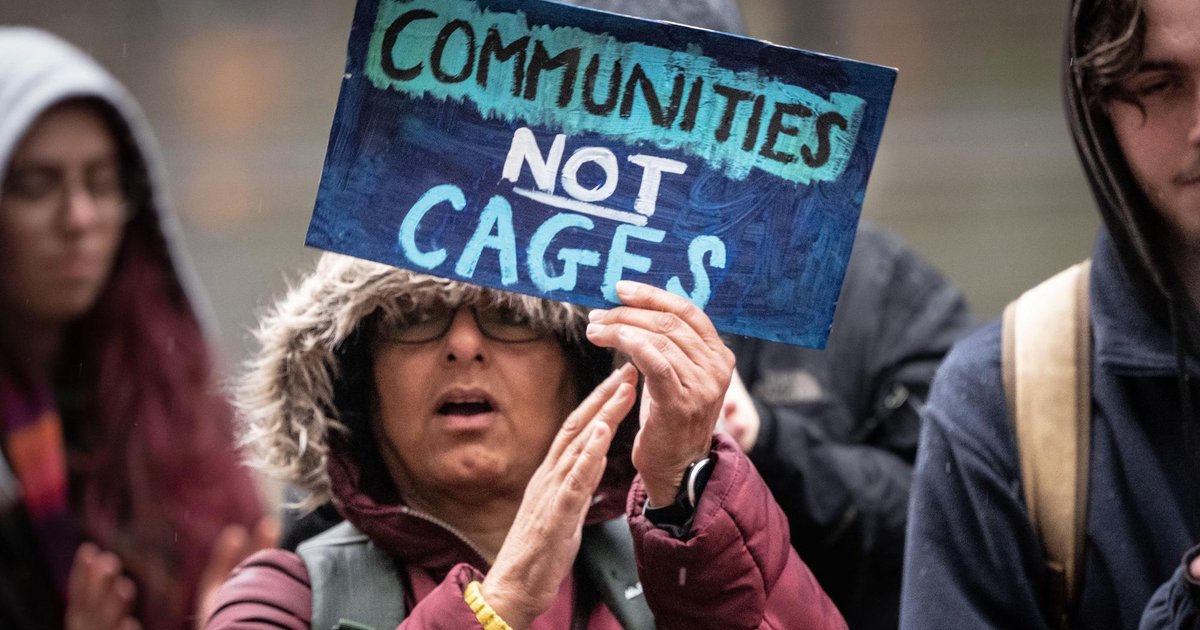Detention centres, not rubber dinghies, are the modern-day slave ships

‘View yon vessel, with sails expanded, ploughing the deep – Contemplate for a moment the scene which it exhibits – Within that receptacle of human misery, are contained hundreds of beings, possessing passions and feelings congenial to thine own' – William Belsham, 1790
In May 1788, Sir William Dolben, one of two MPs for Oxford University, described conditions on board the British slave ships as they transported their captives from Africa to the Caribbean. The enslaved people, he said, were crammed into the holds of ships, with very little room to sleep, chained to each other and to the deck. They were given very little food or water, and they were left to “roll about in their own sickness”.
In our current political climate, invoking the horrors of the Middle Passage plays into political narratives of evil traffickers and perilous crossings. But it's not the sea that links the slave trade to what's happening now on the English Channel. Nor is it the people providing the boats. If there's a parallel to be found, it's that, in both instances, the British state has sanctioned the capture and abuse of people on the move.
If we consider the principles of humanity and justice, as the eighteenth-century abolitionists urge us to do, it becomes clear that slave-ship conditions are not replicated on the boats. They are found in the catastrophic overcrowding and inhumane conditions of the processing site in Manston. And they are the work of the British government.
Setting the level of accepted suffering
When Dolben spoke in Parliament, he wasn't aiming as high as the complete abolition of slavery. He was instead arguing for new regulations that would reduce the suffering the slaves endured. His bill proposed that captains should be restrained from taking on more slaves than their vessels could hold, that fresh air should be mandatory in the underdecks, and that captives should be given more space and wholesome food.
Merchants opposed the bill and denied their practices were cruel. In Parliamentary debate, Charles Fox expressed hope that the accusations were exaggerated, out of consideration for the slaves and the reputations of slave merchants, and William Pitt argued that no one should decline to support the bill if the odious conditions were proved. The bill passed.
This “Eyes on Trafficking” story is reprinted from its original online location.
 ABOUT PBJ LEARNING
ABOUT PBJ LEARNING
PBJ Learning is a leading provider of online human trafficking training, focusing on awareness and prevention education. Their interactive Human Trafficking Essentials online course is used worldwide to educate professionals and individuals how to recognize human trafficking and how to respond to potential victims. Learn on any web browser (even your mobile phone) at any time.
More stories like this can be found in your PBJ Learning Knowledge Vault.
EYES ON TRAFFICKING
This “Eyes on Trafficking” story is reprinted from its original online location.
ABOUT PBJ LEARNING
PBJ Learning is a leading provider of online human trafficking training, focusing on awareness and prevention education. Their interactive Human Trafficking Essentials online course is used worldwide to educate professionals and individuals how to recognize human trafficking and how to respond to potential victims. Learn on any web browser (even your mobile phone) at any time.
More stories like this can be found in your PBJ Learning Knowledge Vault.
